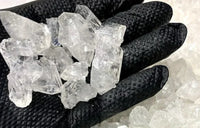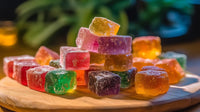Recent posts
-

-
 What Are THCa Diamonds?October 14, 2025
What Are THCa Diamonds?October 14, 2025 -
 Delta 9 Gummies GuideOctober 8, 2025
Delta 9 Gummies GuideOctober 8, 2025 -
 Head High vs Body High: A Guide to Cannabis EffectsOctober 1, 2025
Head High vs Body High: A Guide to Cannabis EffectsOctober 1, 2025 -
 What is THCA Crumble?September 22, 2025
What is THCA Crumble?September 22, 2025 -
 10 Ways to Elevate Self-Care Awareness MonthSeptember 14, 2025
10 Ways to Elevate Self-Care Awareness MonthSeptember 14, 2025

Delta 8 THC: Understanding Its Legal Status in Each State
By Zero Point
Table of Contents
Delta 8 THC: The Controversy and the Legal Loophole
Delta-8 THC has gained immense popularity in recent years, especially in regions where recreational use of cannabis is prohibited. This cannabinoid, derived from hemp, is known for its psychoactive effects, albeit less potent than Delta 9 THC. However, the legal status of Delta 8 varies significantly from state to state. This guide provides a detailed analysis of the D8 THC legal landscape in the United States as of May 2023.
Understanding the Hemp Bill Loophole
The Farm Bill of 2018 placed a restriction on hemp-derived products, dictating that they contain no more than 0.3% of Delta-9 THC. However, it made no such stipulation for Delta-8 THC. This oversight was likely due to the naturally low levels of Delta8 in both hemp and cannabis plants, leading lawmakers to neglect its mention in the bill.
An interesting twist in the tale is the fact that Delta-8 THC can be produced in substantial quantities from hemp-derived CBD, a process that's relatively uncomplicated from a chemical standpoint. Consequently, D8, produced in this manner, is deemed legal under the bill's provisions.
Is Delta 8 THC is legal in your state? Click your state below for more information.
- Alabama
- Alaska
- Arizona
- Arkansas
- California
- Colorado
- Connecticut
- Delaware
- Florida
- Georgia
- Hawaii
- Idaho
- Illinois
- Indiana
- Iowa
- Kansas
- Kentucky
- Louisiana
- Maine
- Maryland
- Massachusetts
- Michigan
- Minnesota
- Mississippi
- Missouri
- Montana
- Nebraska
- Nevada
- New Hampshire
- New Jersey
- New Mexico
- New York
- North Carolina
- North Dakota
- Ohio
- Oklahoma
- Oregon
- Pennsylvania
- Rhode Island
- South Carolina
- South Dakota
- Tennessee
- Texas
- Utah
- Vermont
- Virginia
- Washington
- West Virginia
- Wisconsin
- Wyoming
The Prospective Future of Delta 8
The fate of Delta-8 THC remains uncertain. The Hemp Advancement Act, a proposed bill submitted in 2022, aims to include Delta-8 and other THC isomers in the 0.3% THC limit defined for hemp, thereby rendering hemp-derived Delta-8 products illicit.
Insiders in the industry also predict that the impending 2023 Farm Bill will address the Delta-8 THC loophole, and regulate other intoxicating hemp-derived products. In tandem, individual state laws governing Delta-8 THC are continuously evolving, with a rising number of states deciding to either prohibit or regulate this cannabinoid.
The most probable scenario is that most states will choose to regulate Delta-8 THC similarly to recreational cannabis. This implies that Delta-8 products would be obtainable only through licensed businesses and would be subject to stringent testing, labeling, and other regulations.
This outcome is advantageous for consumers as it would enhance both the quality and safety of Delta-8 THC products.
Understanding D8 THC
Delta 8 THC, a close relative of Delta-9 THC, is one of the many cannabinoids present in cannabis. While similar to its more infamous sibling, D8 THC is noted for its reduced psychoactive effects. The structure of Delta 8 differs slightly from that of Delta 9 THC, resulting in a less potent impact on the body, making it an appealing choice for those who may not respond well to the intense effects of D9 THC.

The effects of Delta 8
When consumed, Delta-8 induces a more mellow high compared to Delta-9 THC. The effects are very similar but less potent, including stress relief, euphoria, uplifting effects, and sedation. These effects are helpful for people who have insomnia. Delta-8 THC can be used to control nausea and vomiting, which can be as effective as Delta 9 without the higher risk of anxiety and paranoia associated with the latter.
Buying Delta-8 THC
The market for Delta-8 products is rapidly expanding, with an increasing number of brands offering these products nationwide. However, the lack of regulation in this market has resulted in a surge of unethical entities seeking to capitalize on the growing demand.
For those resolved on purchasing Delta-8 products, it is advisable to seek out a credible brand like ZPE. These brands should readily provide third-party lab test results, verifying potency and contaminants. Furthermore, transparency in their business operations is another hallmark of a reliable brand.
A prudent choice would be to opt for well-established CBD companies with a proven track record and a strong reputation in the industry.








